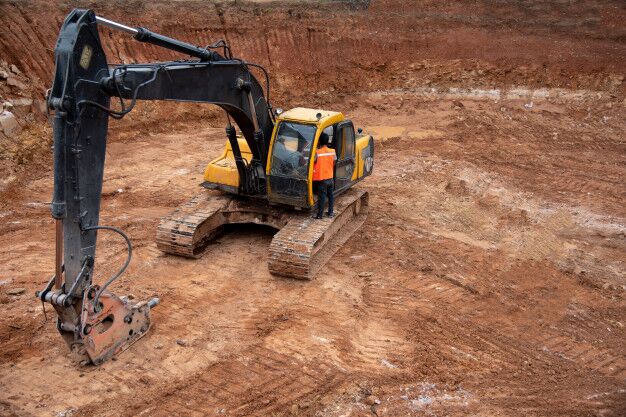
Site preparation in construction is often viewed as the unsung hero, overshadowed by the more visible phases of building and design. Yet, it establishes its significance through its foundational role in ensuring the safety, efficiency, and sustainability of construction projects. This critical phase sets a project on the right path, distinguishing site preparation as an indispensable step in the construction process.
Key activities within site preparation include land surveying, clearing, soil testing, and grading. Each of these tasks is vital for different reasons. Land surveying maps out the terrain, identifying potential challenges and opportunities.
Clearing the site removes obstacles, while soil testing determines the ground’s suitability for supporting structures. Grading ensures the land is appropriately leveled and sloped, which is crucial for drainage and the foundation’s structural integrity. Delving further, each aspect of site preparation carries unique considerations, methodologies, historical context, and implications for the overall project timeline and budget.
The following sections will detail these components, offering a comprehensive look at why site preparation is not just a preliminary step but a cornerstone of successful construction projects worldwide.
Why does site preparation matter?

Site preparation is crucial because it lays the groundwork for a successful construction project. It ensures the safety of both workers and future users by identifying and mitigating potential hazards early on. This proactive approach helps prevent costly delays from unforeseen issues, such as unstable soil or hidden underground utilities.
By addressing these challenges at the outset, site preparation saves money and contributes to the smooth execution of subsequent construction phases. Its importance cannot be overstated, as it directly influences the project’s structural integrity, timeline, environmental impact, and compliance with regulations.
Importance of Hiring a General Contractor

Hiring a general contractor is essential for ensuring the smooth and successful completion of a construction project. General contractors bring a wealth of experience and expertise to the table, managing all aspects of the project from start to finish.
By hiring a general contractor, you can save time and avoid the stress of coordinating various subcontractors yourself. These professionals oversee the entire construction process, ensuring that everything is done efficiently and up to code. They also handle any issues that may arise, providing effective solutions and keeping the project on track.
With their knowledge of the industry and network of reliable subcontractors, general contractors play a crucial role in delivering high-quality results within budget and on schedule.
Qualifications and Licensing Requirements

Ensuring that the general contractor you hire possesses the necessary qualifications and meets licensing requirements is crucial for the success of your construction project.
A qualified general contractor typically holds a relevant degree in construction management, engineering, or a related field. They should also have extensive experience in managing construction projects similar to yours.
Licensing requirements vary by state, but most jurisdictions mandate that general contractors obtain a license to operate legally. This license ensures that the contractor has met specific standards of competency and knowledge in construction practices and regulations.






